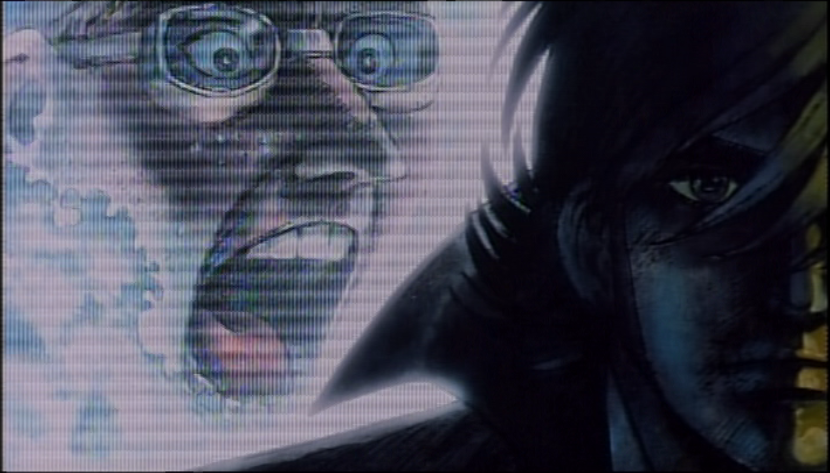Movie Review: Black Jack: The Movie (1996) directed by Osamu Dezaki
The Twentieth Century is still waning, but it looks like the people of the Twenty-First Century, the superhumans, have already arrived! At the most exciting Olympics in decades, record after record is smashed by athletes from around the world. They’re from different countries, so there doesn’t seem to be any national plot, and the drug tests have come up clean, so it appears that superhumans are just a thing now. There’s excitement everywhere…except for Black Jack, the renegade surgeon. He’s concentrating on removing a supposedly inoperable tumor from a little girl for an enormous fee.

Two years later, Black Jack is shocked to learn that the little girl is dying. Not only has the tumor returned, but it has metastasized at an unreal rate. By the time he arrives, it’s too late and the girl dies. Worse, when the autopsy is performed, Black Jack learns that the girl’s internal organs have aged eighty years since he saw them last. He doesn’t, at first, connect this with the ever-rising number of superhumans, who have branched out from sports to the arts. And he’s not answering calls from an anonymous woman….
My first movie for 2020 is an adaptation from Osamu Tezuka’s popular manga about an unlicensed doctor who performs impossible operations for huge fees. The original mixed realistic-looking anatomy with cartoony characters, and sight gags with serious plotlines. This version plays up the more serious bits, and fades back on the more ludicrous character designs–but does feature one massive new silliness.
The anonymous woman catches up with Black Jack in New York, and abducts his ward Pinoko to force him to pay attention. She turns out to be Jo Carol, leader of St. Joel’s Research Center, and Jo needs Black Jack’s help to save the superhumans. To absolutely no one’s surprise, superhumanism comes with some serious down sides, and the superhumans are dying. Superhumanism, it turns out, is a disease, and it’s contagious! Intrigued, and reassured that Pinoko is in no immediate danger, Black Jack joins the research team.
Soon enough, we learn that Jo Carol is in fact Jo Carol Brane, the adopted daughter of the head of Brane Pharmaceuticals. She’s hiding several dark secrets. Oh, she sincerely wants to keep the superhumans from dying, but her motives may not be the purest.
And then we have the biggest silly bit in the movie, though played entirely straight. The MSJ, Medical Soldiers of Justice, attack! Turns out they’re an independent militia that fights against those using unethical medical practices. Like Doctors Without Borders, but with guns.
Towards the end of the film, Black Jack himself is infected with superhumanism, and must race to find a cure before it’s too late.
As noted, this movie is high on the tense medical drama, confining most of its humor to scenes of Pinoko acting childish. (Though one scene confirms she’s more aware of the situation than she lets on.) There’s some nifty use of thermographic imaging and 90s computer graphics, and the opening credits have some nice foreshadowing with imagery that will make sense later.
Having Big Pharma as a villain makes even more sense now, alas.
The viewer is assumed to already be familiar with the franchise, which could trip up some newcomers. Small child Pinoko doesn’t age at all during the two-year time skip, which makes sense to the manga fan, but would seem like a plot hole to someone coming in cold.
Content note: Gory medical bits, child abuse.
The movie takes itself perhaps a little too seriously at times, most notably with the MSJ, and some plot elements are introduced too late in the movie to hold together well.
Recommended primarily to people who are already Black Jack fans; newcomers might want to have a description of the series handy to consult.

